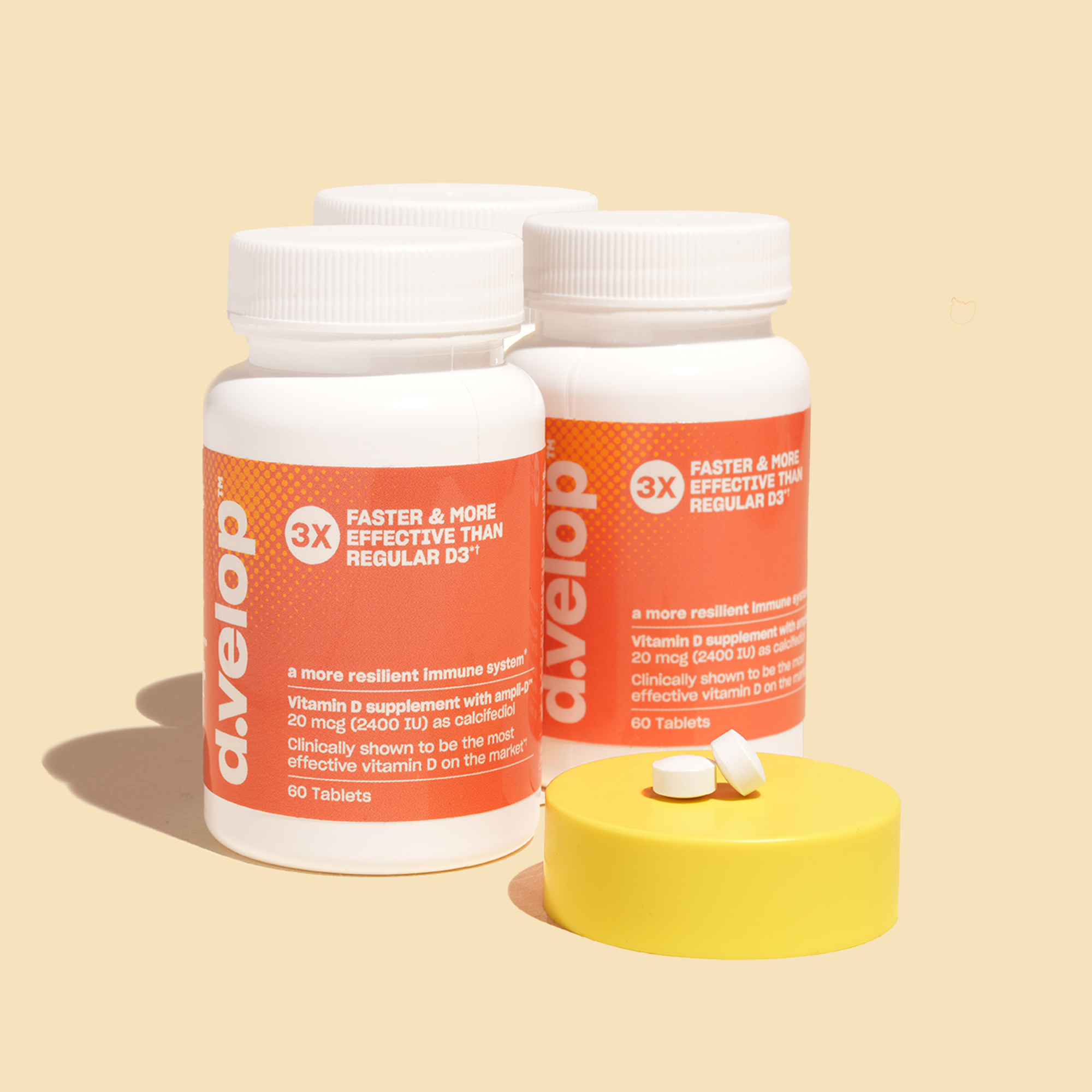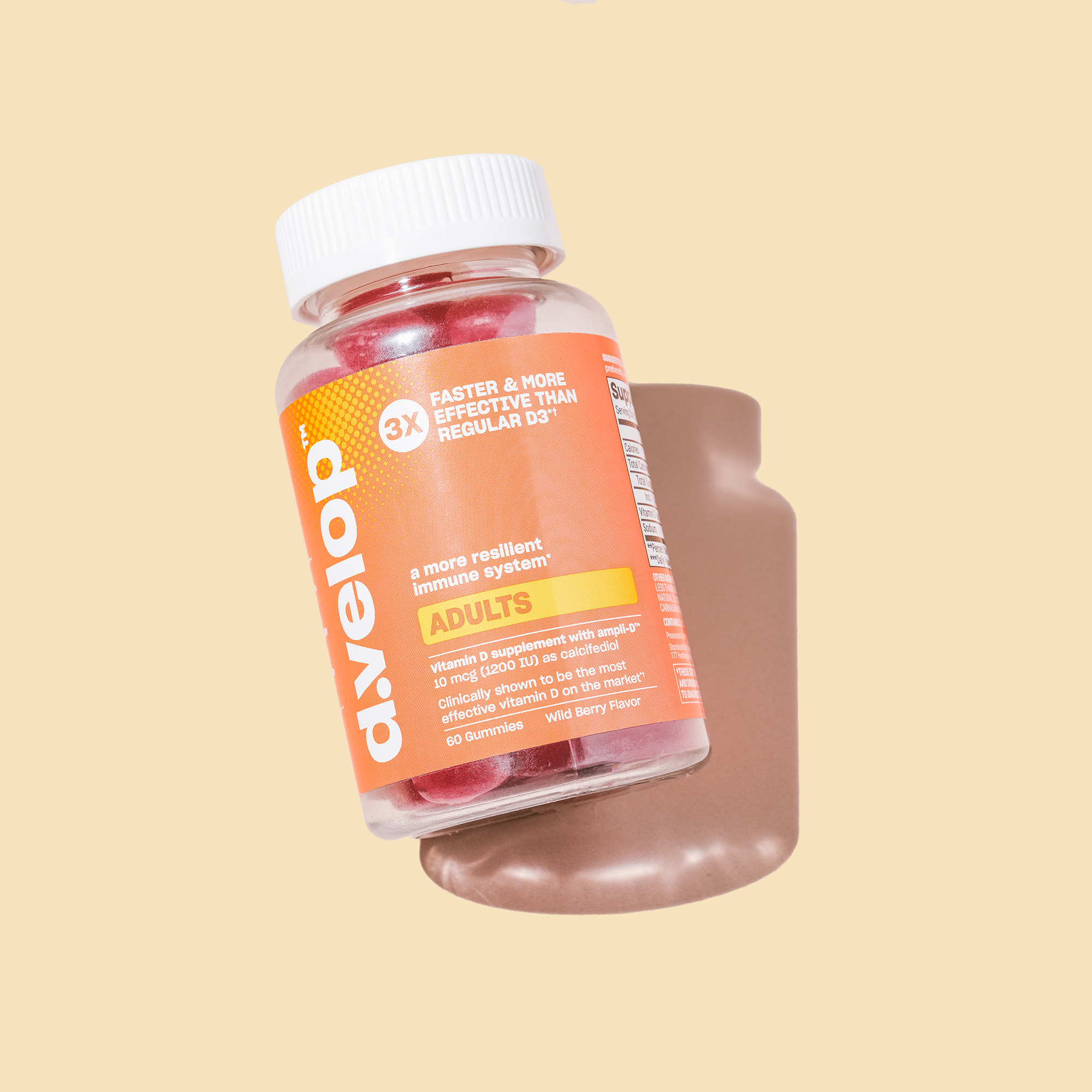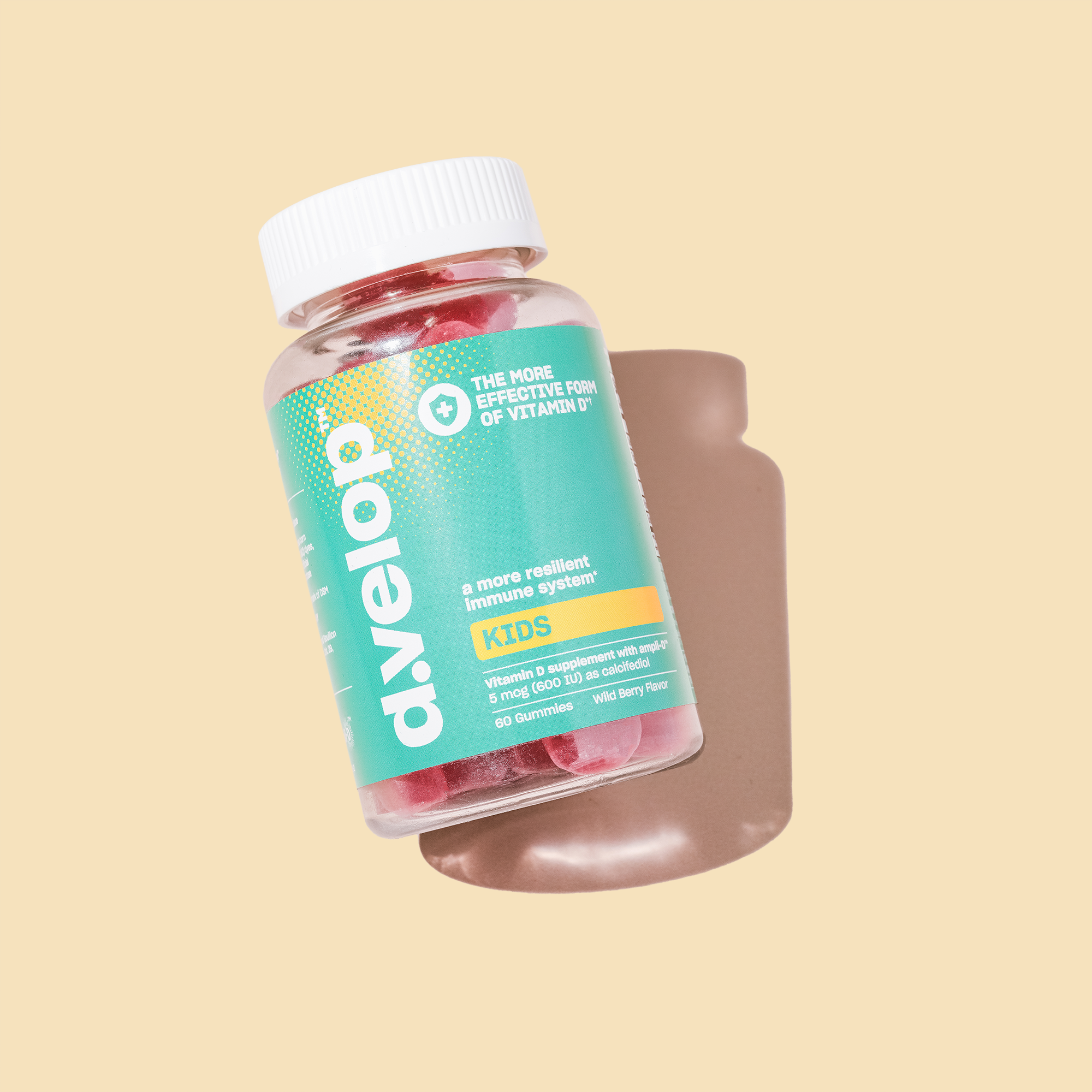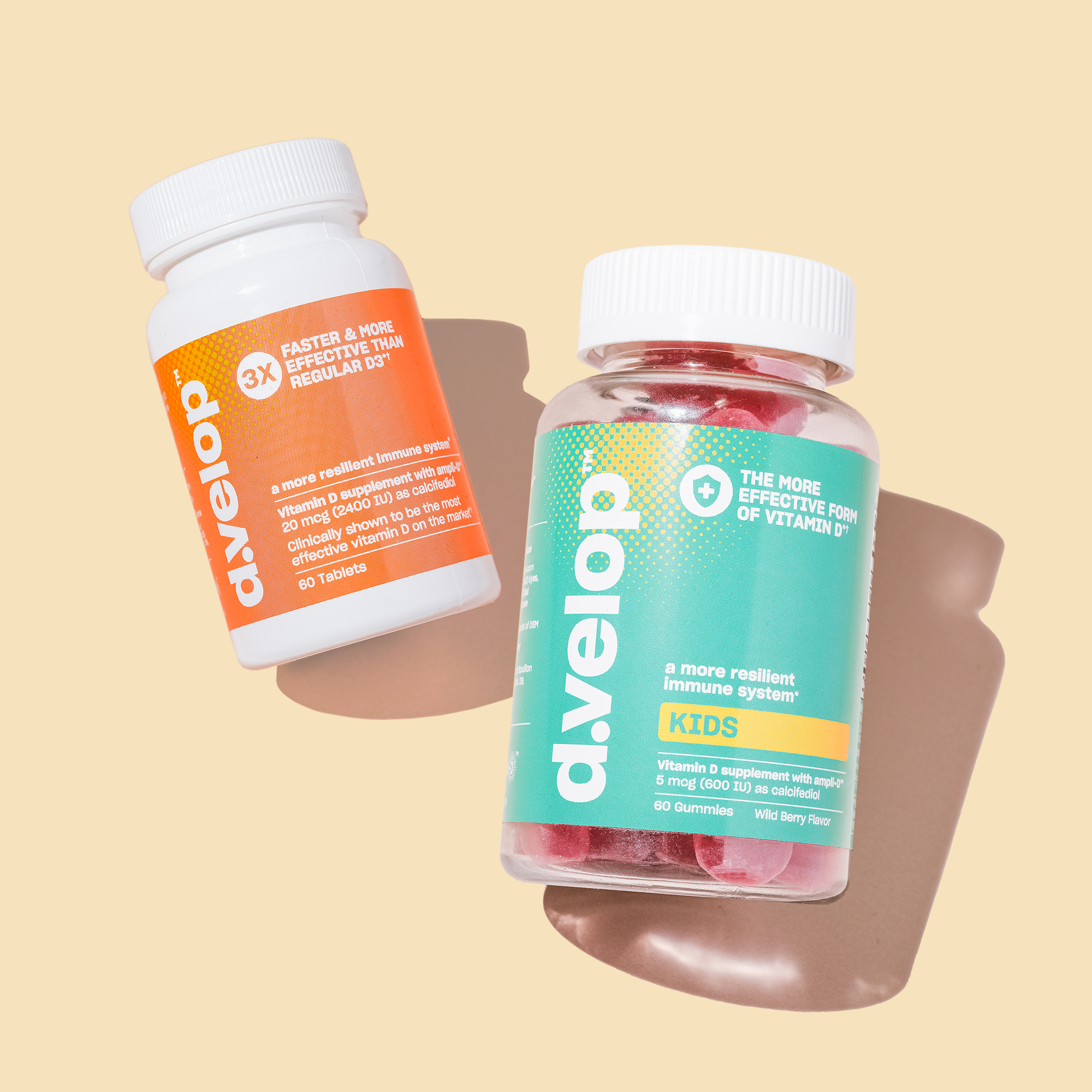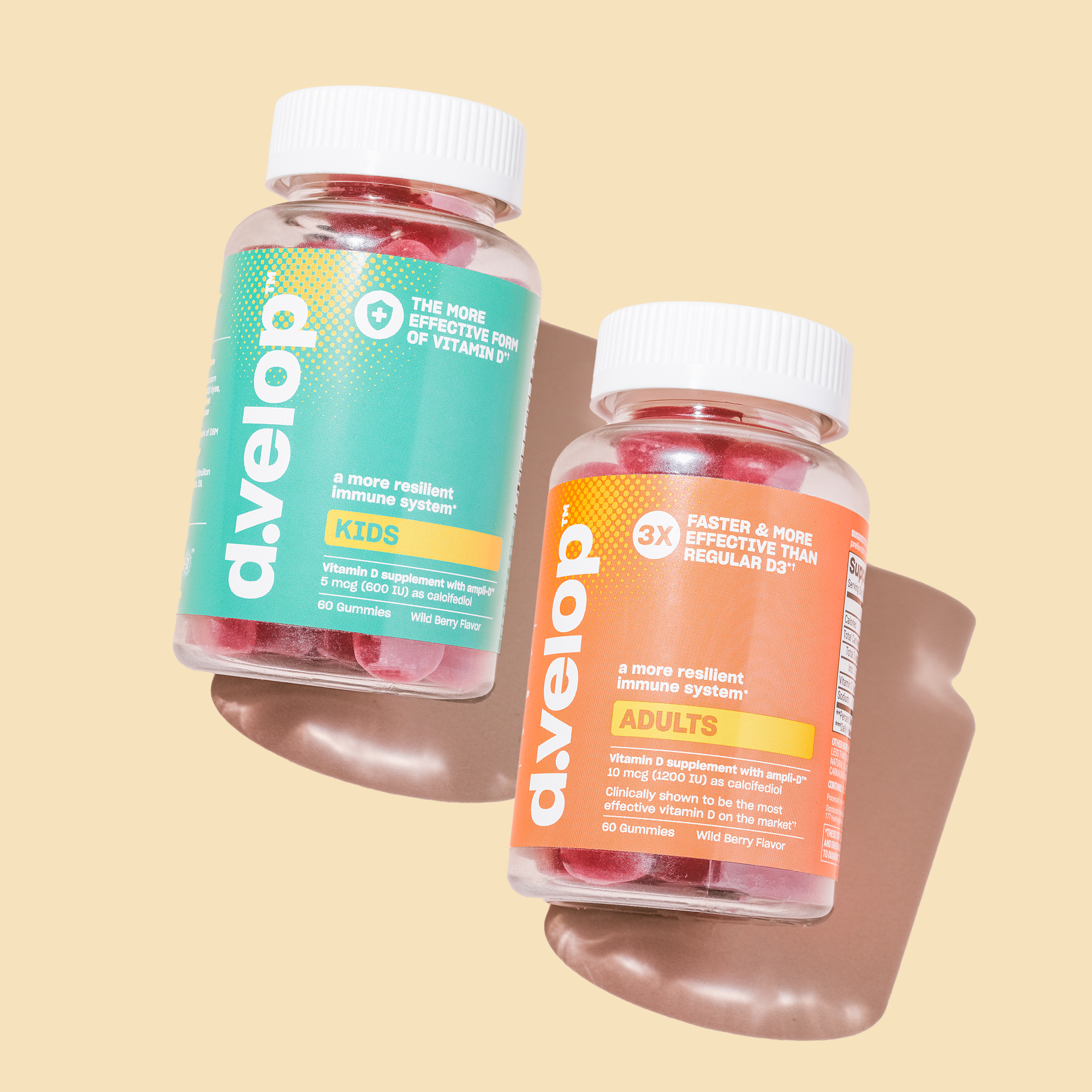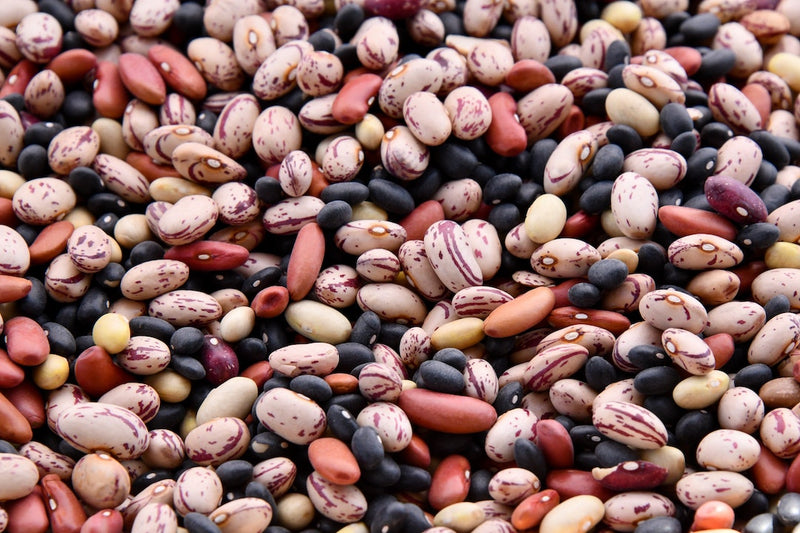Vitamins are needed for our bodies to be able to work properly, undergo normal functioning and promote healthy growth and development. Each vitamin can carry out many unique functions within the body.
What are the 13 essential vitamins?
There are 13 essential vitamins that can be broken down into two categories based on how they are absorbed. These categories are: water-soluble fat-soluble..
Water-soluble vitamins include: B-vitamins (B1 - thiamin, B2-riboflavin, B3-niacin, B5-pantothenic acid, B6-pyridoxine, B7-biotin, B9-folate/folic acid, and B12-cobalamin) alongside vitamin C.
Fat-soluble vitamins include: Vitamins A, D, E, and K.
Each one of these unique vitamins plays an integral role in your body’s ability to function at its finest. From calcium absorption, to digestion, and even healthy eyesight, each vitamin has unique properties that your body should not go without.
So which vitamins perform which functions? Let’s break them down:
Vitamin A
Vitamin A is known for its role in helping maintain vision, and supporting immune, and reproductive health in the body. In addition, it works to keep vital organs, such as the lungs, liver, and heart functioning properly (Blomhoff, 1994). Vitamin A can be found in dairy products, liver, fish oils, and fortified breakfast cereals, as well as in orange and yellow vegetables like squash, carrots, and cantaloupe .
Vitamin C
Vitamin C is an antioxidant commonly associated with immune health and its ability to defend against scurvy, but it’s defense skills don’t end there (Carr et al 2021). Vitamin C helps improve iron absorption and collagen production. Vitamin C can be found in citrus fruits, berries, tomatoes, peppers, broccoli, brussels sprouts and many other fruits and vegetables.
Vitamin D
Vitamin D is a fat soluble vitamin that helps the body with calcium regulation and absorption, immune and bone health. Vitamin D can be found in foods such as fatty fish like salmon, tuna or mackerel, cheese, or egg yolks as well as fortified foods like orange juice, breakfast cereals and yogurt. Since there are few foods naturally rich in vitamin D, vitamin D supplements or vitamin D gummies could be incorporated into your daily routine to support your health.*
Interested in learning more about vitamin D? Check out our vitamin D deficiency quiz to get an idea of how your lifestyle may impact your vitamin D levels. If you want to know those levels for sure, take a vitamin D test.
Vitamin E
Vitamin E is a fat soluble antioxidant that helps the body fight against free radicals (which can cause harm to our cells/tissues), while also helping with blood clotting, and keeping our immune system strong. (Lee, 2018).
Vitamin K
This vitamin is vital to the body’s ability to clot blood and heal wounds by forming platelets. There is additional research that suggests Vitamin K may be useful in the facilitation of bone health (Karpinski et al, 2017). Foods rich in vitamin K include dark leafy greens like kale, spinach, and collards.
Thiamin - Vitamin B1
Thiamin’s role is to keep the nervous system up and running while simultaneously converting food into energy (Polegato et al, 2019). Thiamin can be found in whole grains, meat, and fish as well as fortified cereals.
Riboflavin - Vitamin B2
Riboflavin is also instrumental in processing food and converting it into energy for the body to use. Riboflavin helps the body with energy metabolism, with its role in breaking down fats and proteins. Riboflavin can be found in meats, dairy, fortified breakfast cereals and some green vegetables.
Niacin - Vitamin B3
Niacin is responsible for helping with metabolism and turning the foods we eat into energy. It also helps keep skin healthy and clear, and keep the nervous system functioning properly (Pazirandeh 2020). Niacin can be found in meats, poultry, fish rice, nuts, grains and legumes.
Pantothenic acid - Vitamin B5
You can thank Vitamin B5 for taking your lunch and turning it into the energy that you need to get through your day. Pantothenic acid is responsible for the breakdown of fats and also creating blood cells (Chen et al, 2015). Vitamin B5 can be found in meats, poultry, rice, fortified foods and some vegetables.
Pyridoxine - Vitamin B6
Vitamin B6 helps with many functions in the body including the breakdown of foods into fuel, support for the immune system and brain health and also in maintaining normal levels of the amino acid homocysteine which can increase your risk for heart disease or stroke (Rutjes et al, 2018).
Biotin - Vitamin B7
Beautiful hair and nail growth is supported by biotin. Biotin helps the body turn the fats, carbs, and proteins that you consume into energy that can be used in many bodily processes. Biotin can be found in meat, fish, poultry, eggs, nuts and seeds and sweet potatoes.
Cobalamin - Vitamin B12
Vitamin B12 works to keep the body’s nerve cells, blood cells, and DNA healthy Vitamin B12 also helps with the construction of DNA, which is present in all of the cells in your body! B12 can be found in animal products such as meat, milk, eggs and fortified cereals (Watanabe 2007).
Folate (folic acid) - Vitamin B9
Vital to the production of healthy red blood cells, folate works around the clock to support health cell growth. It’s no wonder folate is considered one of the essential vitamins to the body. In fact, expecting mothers are often asked to incorporate extra folate into their diets to prevent birth defects as it is crucial to the development of the brain, spinal cord, and skull of each new, developing life (Bailey et al, 1999). Folate is the form of vitamin B9 that can be found in foods, while folic acid is man-made and found in supplements. Folate-containing foods include dark leafy greens like spinach, kale, cabbage, and broccoli, and also in legumes, liver and fortified breakfast cereals.
Which vitamins are the most important?
All of the vitamins that we’ve discussed here play a role in how our bodies function each day. No one single vitamin is necessarily “more important” than another, however it is important to keep in mind everyone's body is slightly different. Whether it be in terms of health conditions, genetics, dietary preferences, or even certain medications, it is important to speak with your healthcare provider to understand if there are specific vitamins you should focus on depending on your situation.
At the beginning of the day you might have been asking yourself, “Are vitamins really essential?”. Just take a look at all of the roles each individual vitamin does for our bodies! A well-balanced diet is a great start towards incorporating these into your everyday routines. Feeling curious about if you are getting essential vitamins and minerals in your day to day meals? Chat with a Registered Dietitian to find ways that work for you! If you find that your diet has some gaps (which are normal by the way), you might consider supplements to help your immune system, or support your overall health. It’s always best to ask your healthcare provider before starting a dietary supplement.
References:
Blomhoff, R. (1994). Vitamin A in health and disease. CRC Press.
Carr AC, Maggini S. Vitamin C and Immune Function. Nutrients. 2017; 9(11):1211.
Lee GY, Han SN. (2018) The Role of Vitamin E in Immunity. Nutrients. 10(11):1614.
Pazirandeh S. (2020). Overview of water-soluble vitamins.
